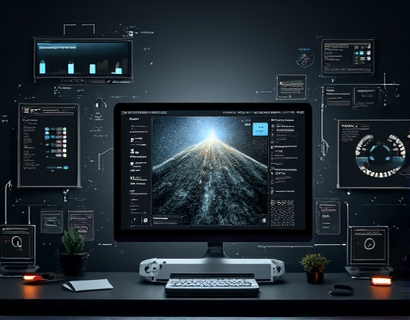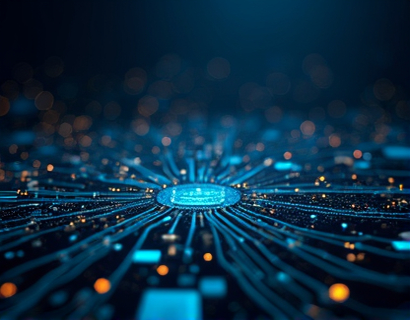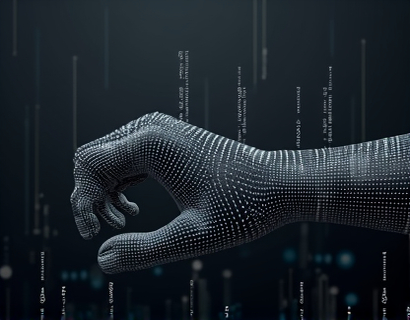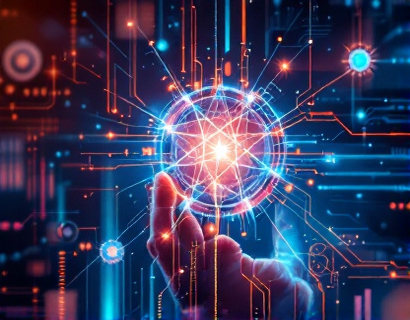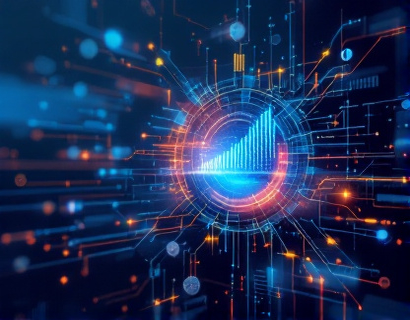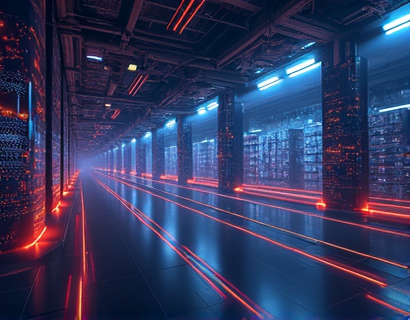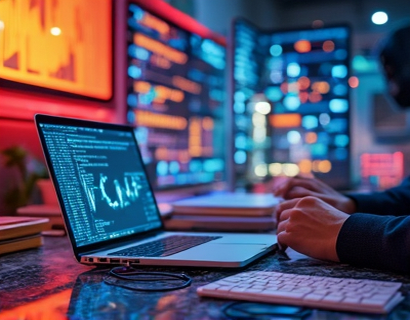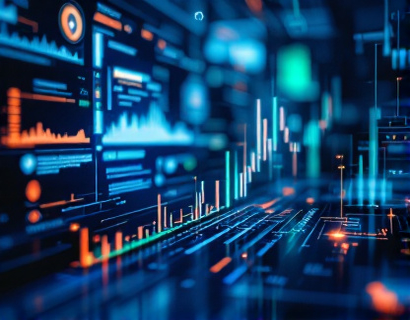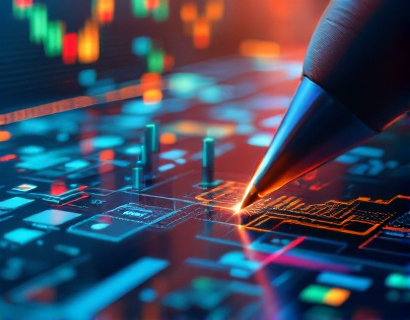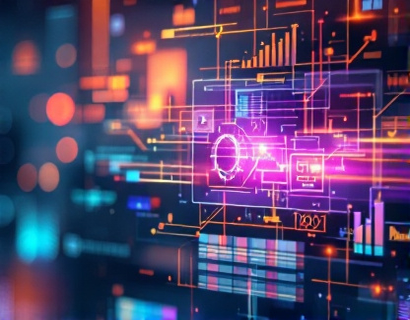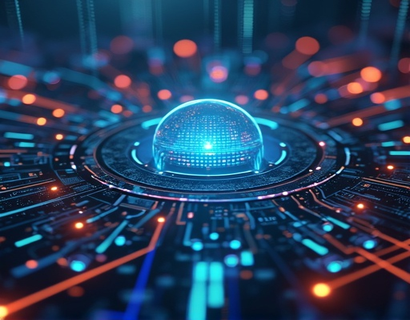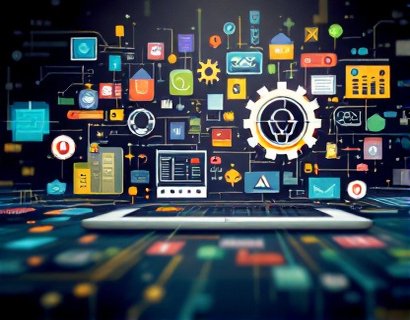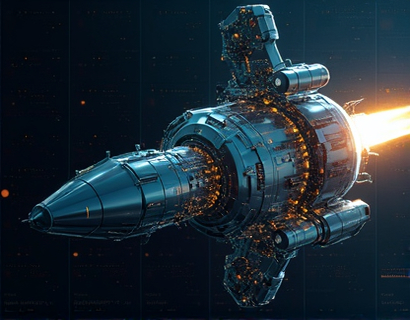Revolutionizing Digital Transformation: The Synergy of Crypto and AI
The intersection of cryptocurrency and artificial intelligence (AI) is ushering in a new era of digital transformation, offering unprecedented opportunities for tech innovators and early adopters. This convergence is not just a technological advancement but a paradigm shift that is redefining how we interact with digital systems and platforms. By leveraging the decentralized and secure nature of blockchain technology alongside the intelligent capabilities of AI, we are witnessing the creation of advanced solutions that enhance online presence and drive innovation.
The integration of AI in the crypto space is particularly transformative. AI algorithms can analyze vast amounts of market data to predict trends, optimize trading strategies, and enhance security measures. For instance, machine learning models can identify patterns in cryptocurrency price movements, providing insights that traditional methods might miss. This not only aids in making more informed investment decisions but also in developing more robust and secure blockchain applications.
Enhancing Security with AI
One of the most significant benefits of combining AI with cryptocurrency is the enhancement of security protocols. Traditional cybersecurity methods often struggle to keep pace with the evolving landscape of cyber threats. AI, however, can dynamically adapt to new threats by learning from past incidents and continuously improving its defensive strategies. In the context of crypto, AI-driven security solutions can detect and mitigate fraudulent activities, such as phishing attacks and smart contract vulnerabilities, in real-time.
For example, AI-powered monitoring systems can analyze transaction patterns and user behavior to identify anomalies that may indicate malicious activity. These systems can automatically trigger alerts and implement countermeasures, ensuring that the integrity of the blockchain network remains intact. This level of proactive security is crucial for building trust among users and fostering the widespread adoption of cryptocurrency technologies.
Smart Contracts and AI Optimization
Smart contracts, self-executing contracts with the terms directly written into code, are another area where AI can significantly enhance functionality. AI can optimize smart contracts by analyzing vast datasets to identify inefficiencies and potential risks. This optimization process ensures that smart contracts operate smoothly and reliably, reducing the likelihood of errors and disputes.
Moreover, AI can assist in the creation of more sophisticated smart contracts that adapt to changing conditions. For instance, AI algorithms can dynamically adjust the parameters of a smart contract based on real-time data inputs, such as market conditions or user behavior. This adaptability makes smart contracts more versatile and applicable across a wider range of use cases, from decentralized finance (DeFi) to supply chain management.
Personalized User Experiences through AI
The synergy of AI and cryptocurrency also extends to enhancing user experiences on digital platforms. By leveraging AI-driven analytics, platforms can offer personalized services tailored to individual user preferences and behaviors. This personalization is particularly valuable in the crypto space, where users often seek tailored solutions for managing their digital assets and investments.
For example, AI can analyze a user's transaction history, investment goals, and risk tolerance to provide customized recommendations for crypto assets and strategies. This level of personalization not only improves user satisfaction but also increases engagement and loyalty to the platform. Additionally, AI-powered chatbots and virtual assistants can provide 24/7 support, answering queries and guiding users through complex processes with ease.
Decentralized AI Marketplaces
The convergence of AI and cryptocurrency has given rise to decentralized AI marketplaces, where developers and businesses can buy, sell, and trade AI models and data sets. These marketplaces operate on blockchain networks, ensuring transparency, security, and decentralization. AI models can be tokenized, allowing for fractional ownership and easier access to advanced AI technologies.
This decentralized approach democratizes access to AI, enabling smaller entities and individual developers to leverage cutting-edge AI capabilities without the need for substantial financial resources. It also fosters a collaborative ecosystem where developers can share and build upon each other's work, accelerating innovation and progress in the field.
Data Privacy and AI
Data privacy is a critical concern in the digital age, and the combination of AI and cryptocurrency offers robust solutions to protect user data. Blockchain's inherent properties, such as immutability and transparency, combined with AI's advanced encryption techniques, can create highly secure data storage and processing systems. AI can enhance these systems by continuously monitoring for potential vulnerabilities and implementing real-time security measures.
Moreover, AI can help in anonymizing data while preserving its utility, ensuring that user privacy is maintained. Techniques such as differential privacy, powered by AI, can add noise to data sets to prevent the identification of individual users, thereby safeguarding their personal information. This balance between utility and privacy is essential for building trust and encouraging broader adoption of crypto and AI technologies.
Scalability and Efficiency
Scalability and efficiency are key challenges in the crypto space, and AI plays a pivotal role in addressing these issues. AI algorithms can optimize blockchain networks by managing resource allocation, reducing latency, and improving transaction throughput. For instance, AI can predict network congestion and dynamically adjust parameters to maintain optimal performance.
Additionally, AI can enhance the efficiency of mining processes by optimizing energy usage and computational resources. This not only reduces the environmental impact of crypto operations but also lowers costs for miners and users. By streamlining these processes, AI helps make cryptocurrency more sustainable and accessible, paving the way for wider adoption.
Future Prospects and Challenges
The future of crypto and AI is promising, with numerous potential applications and innovations on the horizon. However, there are also challenges that need to be addressed to fully realize the potential of this synergy. Regulatory frameworks must evolve to accommodate the unique characteristics of decentralized AI systems, ensuring that they operate within legal and ethical boundaries.
Furthermore, the technical complexity of integrating AI with blockchain technologies requires ongoing research and development. Collaboration between academia, industry, and policymakers is essential to overcome these challenges and drive the adoption of advanced crypto and AI solutions. As the technology matures, we can expect to see even more sophisticated and user-friendly applications that continue to transform the digital landscape.
In conclusion, the convergence of cryptocurrency and AI is revolutionizing digital transformation by providing powerful tools that enhance security, personalization, and efficiency. Tech innovators and early adopters who embrace these technologies are well-positioned to lead the charge in this new era of digital innovation. By harnessing the strengths of both crypto and AI, we can create a more secure, efficient, and inclusive digital world.






